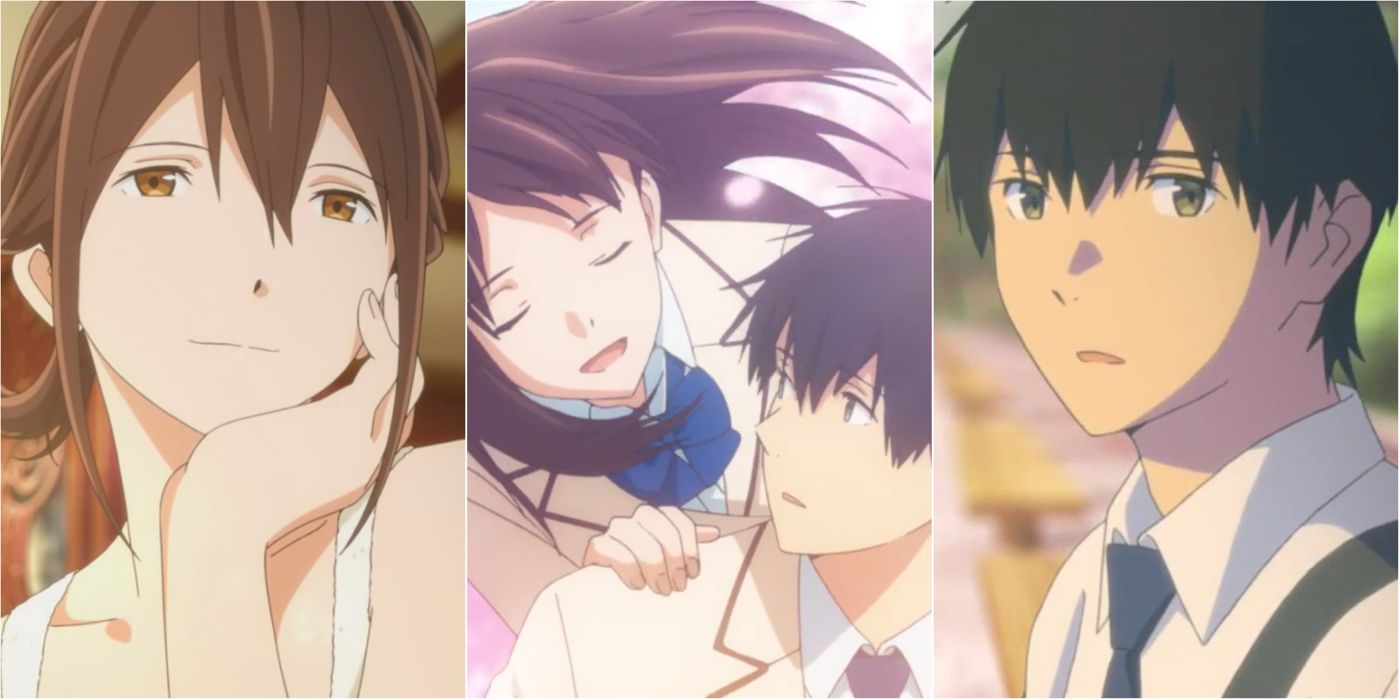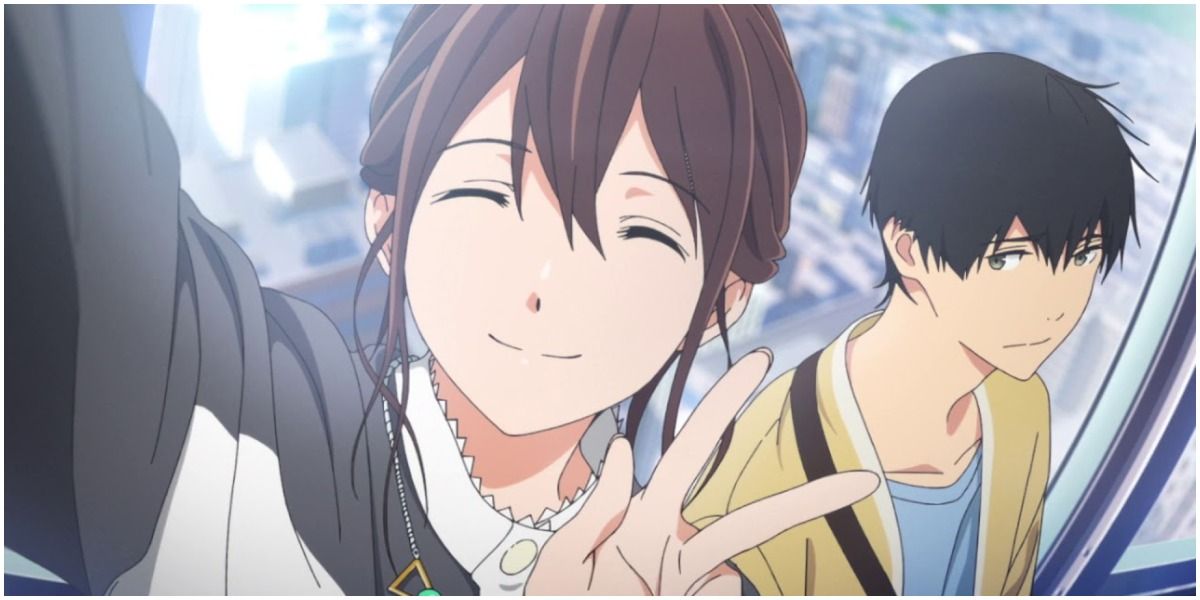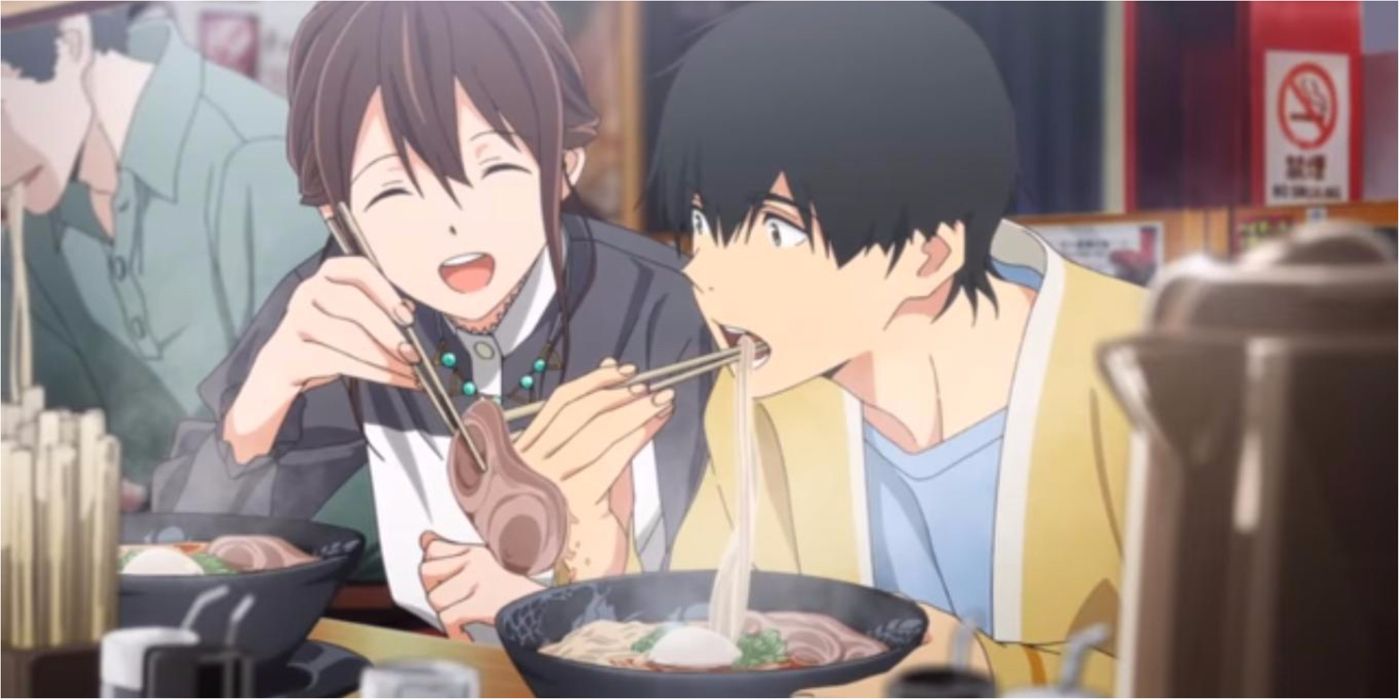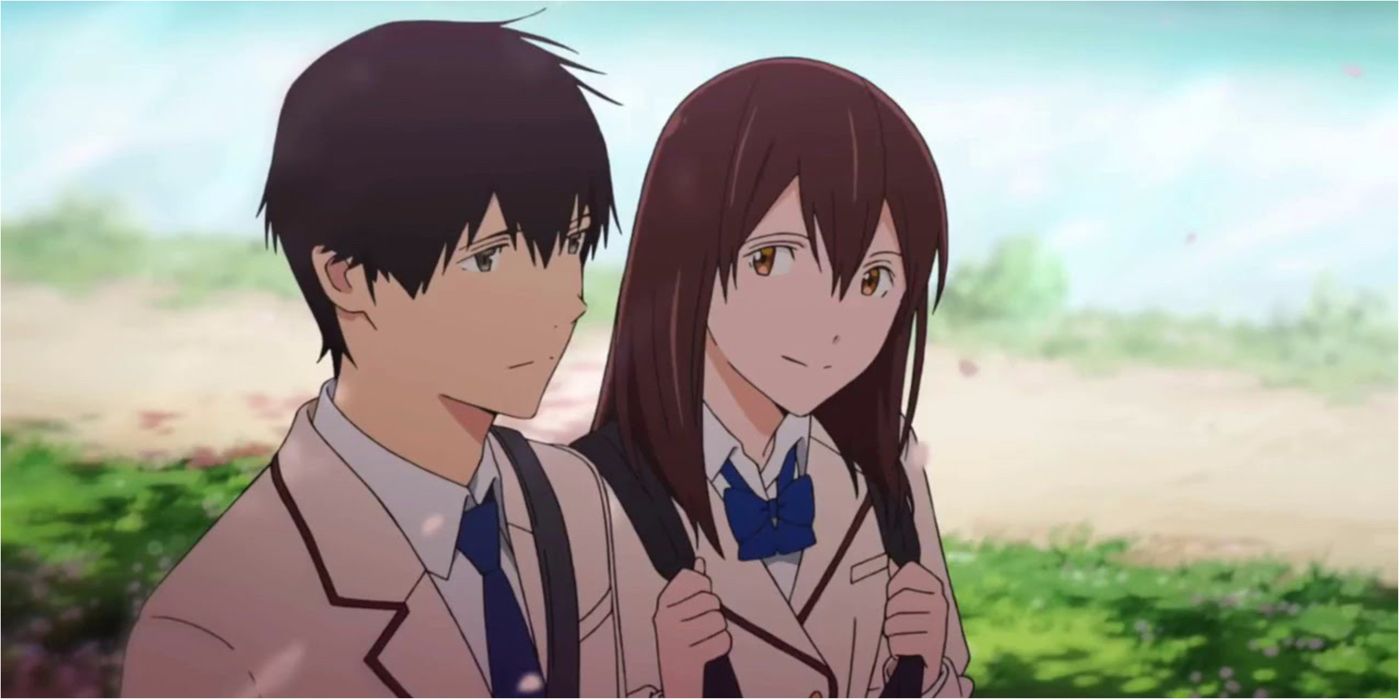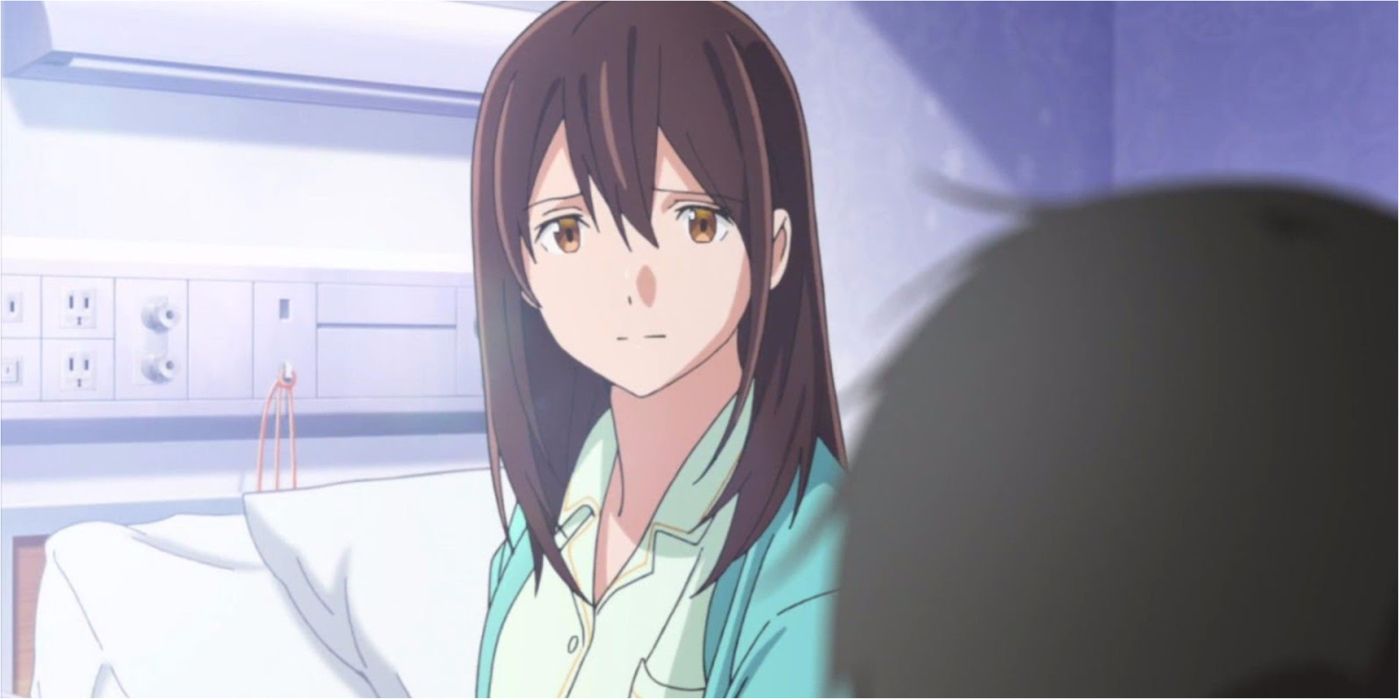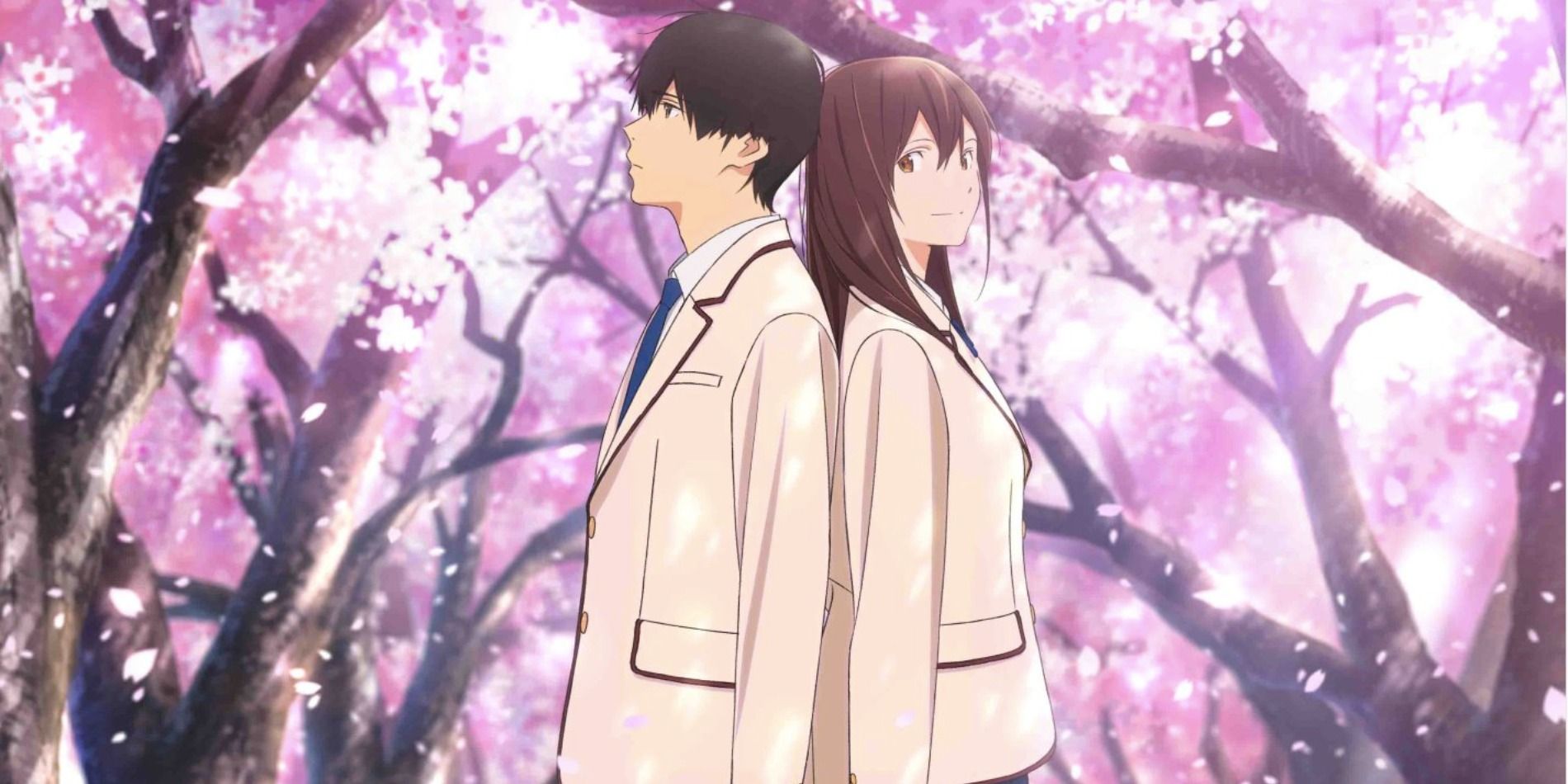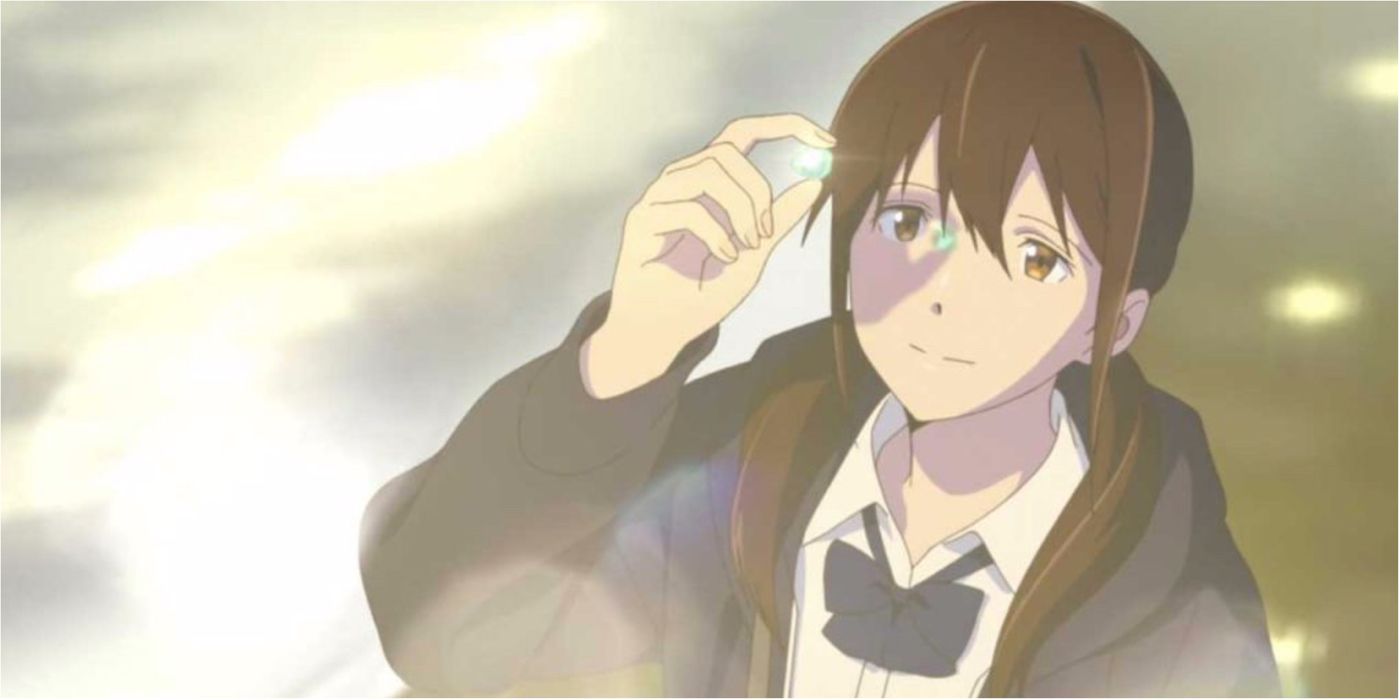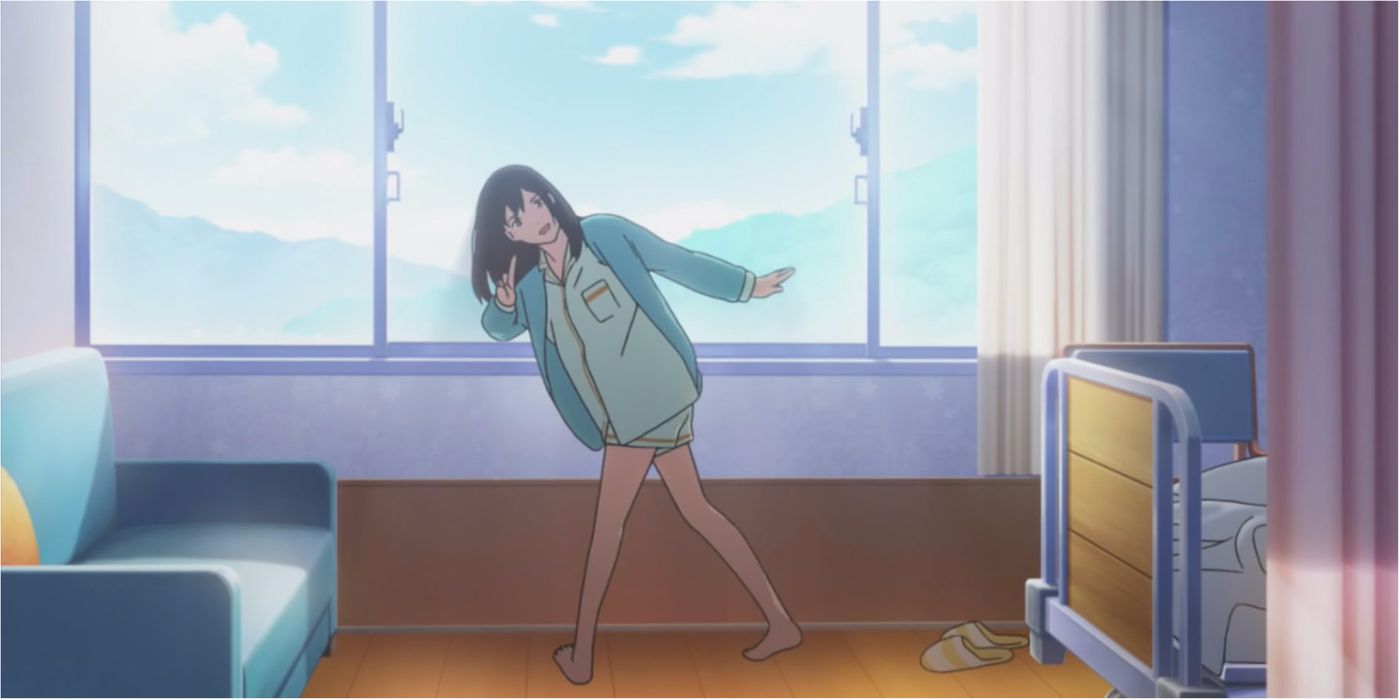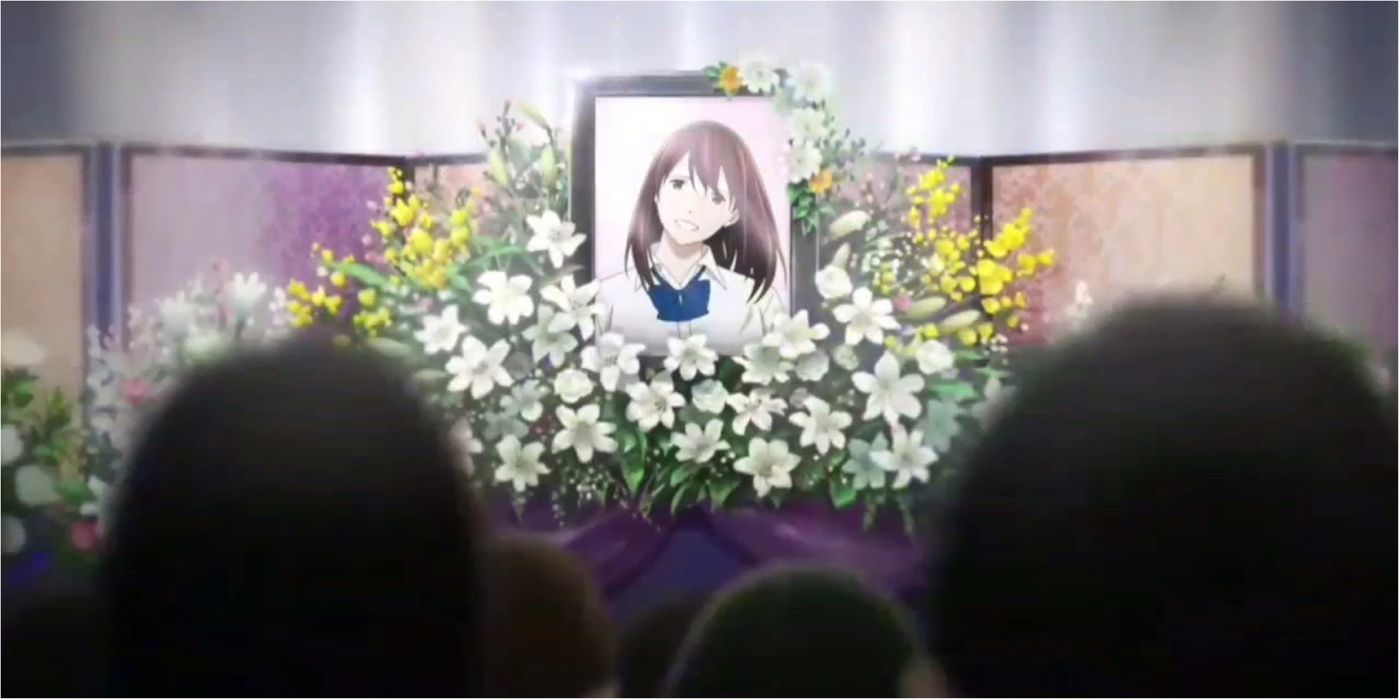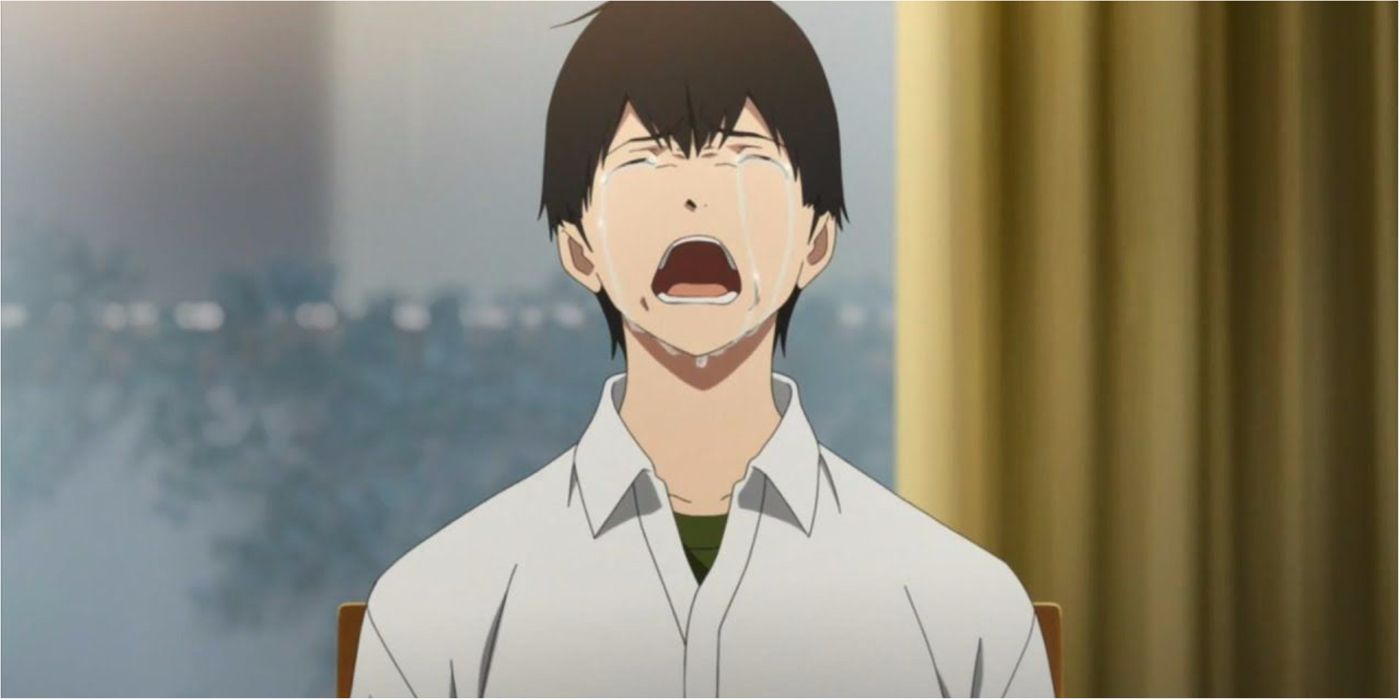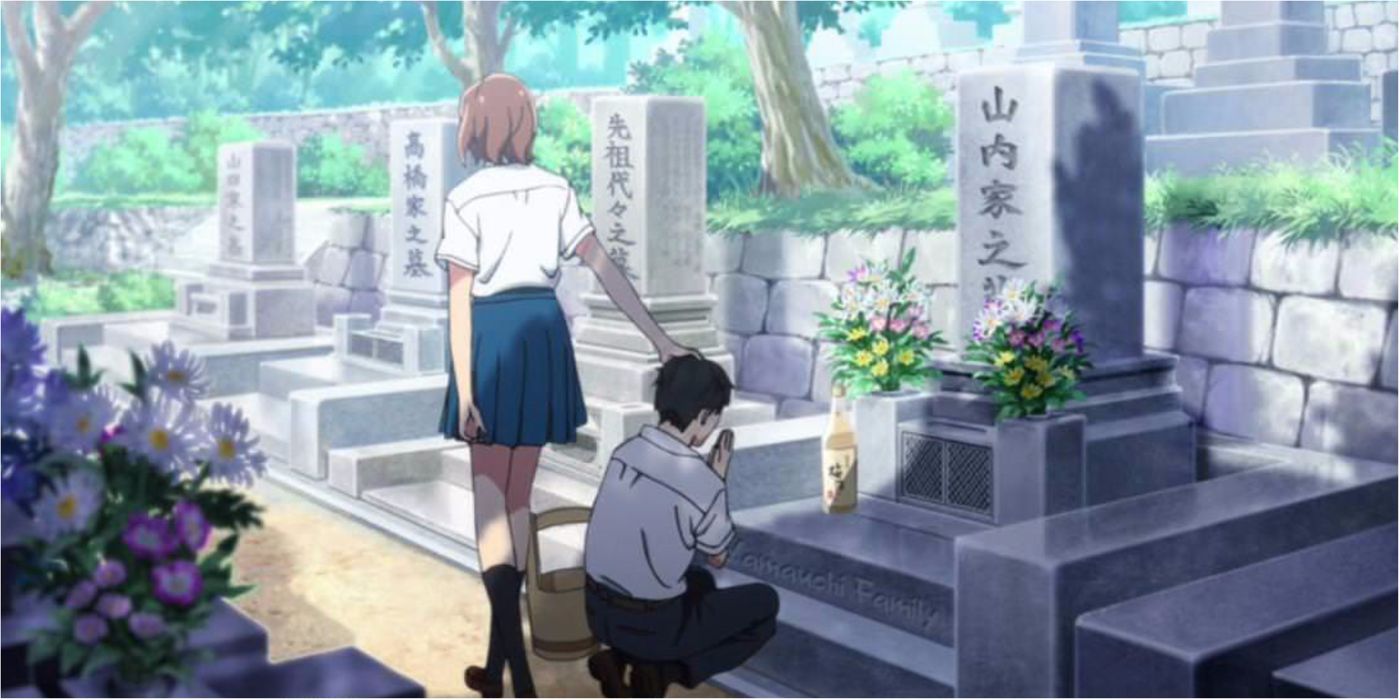Despite its intentionally misleading title, the anime film I Want to Eat Your Pancreas is one of the most heartfelt and unexpectedly profound dramas to come out in recent years. This sorrowful story of love and loss starts with an unnamed protagonist picking up a weirdly titled journal, "Living with Dying," on a hospital trip.
Soon, he meets its energetic owner Sakura, who suffers from a terminal pancreatic disease in secret. Casting away their differences, the two connect, bringing the audience a mesmerizing story of friendship prevailing in the face of death. Sakura's tale can teach viewers many important lessons about life's subtle joys and unbearable tragedies.
10 Meaningful Connections Make Life Worth Living
The film's nameless protagonist, who the audience later learns goes by Haruki Shiga, spent his adolescence in isolation before meeting Sakura. He goes out of his way not to get attached to others and doesn't see a point in forming close bonds.
Ironically, getting to know Sakura helped Haruki see how dull and pointless life is without friends and loved ones to share its joys and disappointments. Even after his first real friend passes away, Haruki continues to live by the lesson she taught him, bonding with Sakura's best friend, Kyoko.
9 Live Everyday Like It's Your Last
Diagnosed with a terminal pancreatic disease, Sakura understands that her days are numbered. Yet, she refuses to let the looming death crush her spirit. The girl is determined to make the best of her remaining time, writing a bucket list of everything she still wants to experience.
Sakura's eagerness to spend her remaining time meaningfully teaches the viewers a valuable lesson about life's fleeting nature. Instead of being scared of life's unavoidable end, Sakura encourages the audience to never hold back and make every day unforgettable.
8 Inspiration Can Hide In Unexpected Places
The film's listless hero Haruki never felt inspired to add meaning to his monotonous routine. Lonely and antisocial, the boy wasn't motivated to change anything until he met Sakura, someone he had no interest in befriending at first.
Yet, the fateful encounter with a terminally ill girl helped Haruki to look at his life from a different perspective. While he would never imagine taking so much out of their short-lived relationship, the bond with Sakura was an unexpected push Haruki needed to change his life.
7 Medical Conditions Shouldn't Affect How People Are Treated
One of the main aspects of Haruki's personality that interested Sakura in befriending the boy is his nonchalant treatment of her despite her condition. Her whole life, Sakura had to deal with people walking on eggshells around her because of her terminal illness.
Instead, the girl just wanted a normal life and appreciated Haruki's refusal to treat Sakura any differently because of her pancreatic disease. The film conveys that people with disorders, illnesses, disabilities, or other differences deserve to be treated just like everyone else.
6 People With Seemingly Opposite Experiences Can Learn A Lot From Each Other
Opposites attract is a popular statement, yet no piece of media conveys the message behind it as effectively as I Want to Eat Your Pancreas. Haruki and Sakura could not have been more different from each other.
Yet, the cheerful girl with a dark, tragic secret and the timid, emotionless boy with no friends changed each other for the better. Their polar opposite experiences helped Sakura and Haruki look at life from a different angle, appreciating its aspects they would never see on their own.
5 Even The Saddest Parts Of Life Can Be Filled With Happy Moments
Sakura's adolescence was spent in hospitals, surrounded by crying parents and apologetic-looking doctors. Nothing in such a grim childhood seems like it could make the girl smile. However, Sakura was always determined to fill her short life with precious moments and happy memories.
From going on an improvised train trip to Fukuoka with Haruki to sneaking out of the hospital to see fireworks, Sakura looked out for experiences that brought her joy. It’s easy to forget that moments of happiness brighten even life's darkest periods.
4 Illness Doesn't Define A Person
Media has a bad habit of framing characters with illnesses through the perspective of their struggles, reducing them to their diseases. On the contrary, Sakura teaches the audience that medical conditions don't define people's personalities and outlooks on life.
While her pancreatic disease had a tremendous effect on her life, Sakura's most notable features are her outgoing personality, courageous character, and playful attitude. The heroine herself sees the disease as the least notable aspect of her character, and Sakura doesn't tolerate others equating her to her condition.
3 Fate's Unpredictability Shouldn't Discourage Anyone From Fighting Against All Odds
No one knows how their story is going to end. Sakura lived her life prepared to crumble to her pancreatic disease at any moment. In the end, she died suddenly and violently from a stabbing on a random night.
No one can control their fate, but it doesn't mean what people chose to do with their lives doesn't matter. The film's core message is that fate is the result of thousands of choices people make throughout their lives — and even the most insignificant decisions can make a difference.
2 Grief Is A Normal Human State That Shouldn't Be Erased
When the usually emotionless Haruki learns about Sakura's passing, he breaks down, realizing that he lost someone truly irreplaceable for the first time in his life. Grief strikes people differently, and Haruki was so overtaken by his sorrow that he couldn't even attend Sakura's funeral.
Despite knowing that Sakura will die from the start, Haruki still finds her death unbearable. His grounded, hard-hitting sorrow shows the audience that there's no right or wrong way to process something as devastating as the death of a loved one.
1 Moving On Doesn't Mean Forgetting Loved Ones Who've Passed
After retrieving "Living with Dying" from Sakura's mother and reading the girl's final messages, Haruki realizes just how much Sakura meant to him. Haruki continues to live by the things their short friendship taught him.
While Haruki is shown a year later visiting Sakura's grave with Kyoko, it's clear that both teens found the strength to move forward after their friend's passing. The film ends with a strong message about life's persistence, as even after losing Sakura, Haruki continues to live on, holding onto their fond shared memories.

